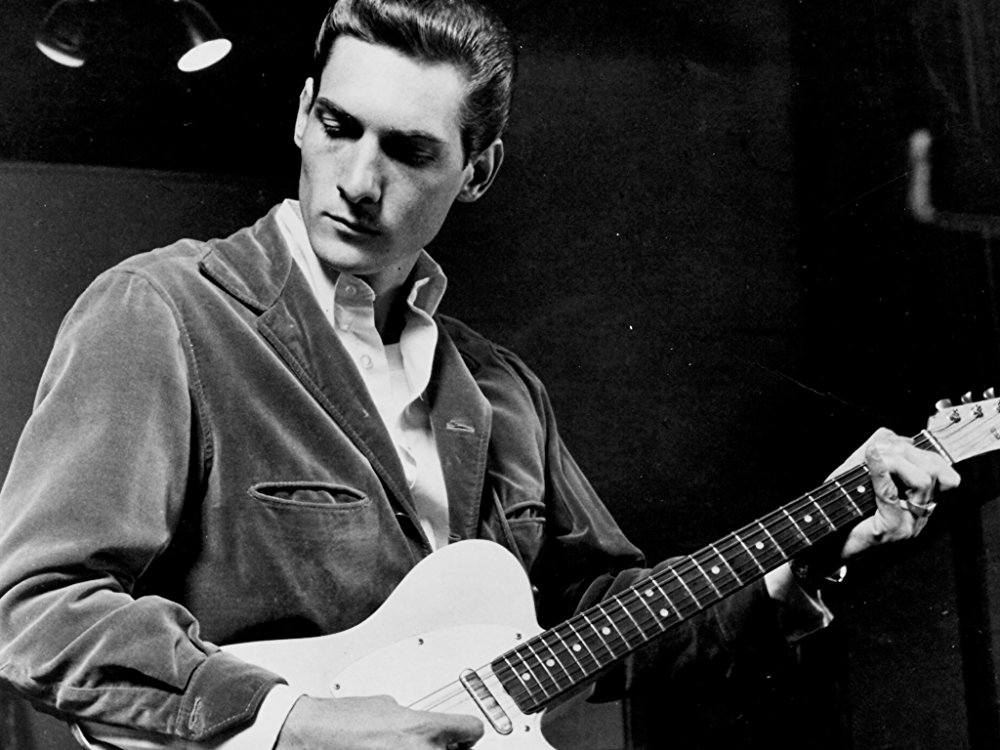Producer, songwriter, and guitarist Steve Cropper talks about recording “Dock of The Bay” with Otis Redding who died before the song was released. He calls finishing the song after Otis was gone the hardest thing he ever had to do.
“I said, ‘What do you have ready, Otis?’ He said, ‘Nothing!’ I just got a call from Jerry Wexler. We gotta have something out quickly. I said, ‘I don’t have anything.’ I went out at 7:30, Twenty-four hours later I had everything, which Otis never heard. He never (knew) all the words.
“I didn’t co-write it with him. I just wrote the first verse and the second verse. He got hip and started writing about himself some. It says Steve Cropper/Redding. All the verses are all about him. “I’ve been singing sad songs. Fah, fah, fah, fah, fah.” That was him describing a saxophone…..There’s a song right there: fah, fah, fah, fah, fah, fah. That was his idea of the sound of a saxophone: Fah, fah, fah fah. They always do that warming up. They stop the reed; fah, fah, fah. (chuckle)
“Otis Redding grew up on a farm in Georgia, and I grew up on a farm in Missouri. So, we had a lot in common. He was so streetwise. He was so much wiser than I was, and he took me everywhere. We were the same age. I didn’t know that until l read it in his obituary. I thought he was 10 years older than me. He was the brother from a different mother.”

Race was never an issue at Stax Records where “Dock of the Bay” was recorded. Booker T & The MGs were the first successful bi-racial band in the early ’60s. That fact never entered their minds.
“I had no idea. Some of ’em were black and some of ’em were white. I had no idea. Later, I was made aware of that, but not at the time. We were just guys having some fun. We were just guys working together. There was no color. When a black man came off the street and walked through the door in Stax, he was treated as an equal. Always! There was no color at Stax. You may find that hard to believe. But this was the truth.
“I really respected Booker T. I never looked at them as black people. They were just other people. It didn’t matter what color they were. They could have been green for all I care. I didn’t know what (a mixed bi-racial band) was at the time. I wasn’t even thinking about it. We were just trying to do what we did. We didn’t know what we were doing. We just did it out of inspiration.”
Out on the road in the south in the early 1960s was a different story. “I never looked at Al (Al Jackson on drums) or Booker as being black even when we were on the road. When we were refused at motel and hotels, we’d go to the outskirts of town. We knew we could find a room out there. If we needed the money, we’d all stay in one room. (chuckle) A lot of the time when we played, we stayed in the bar where the gig was. We stayed several times in the same place we played. It was cheaper for them. It was just cheaper all the way around. So, I didn’t care.
“When the lights go out, we’re all the same. You just want that bed to be comfortable. That’s all you want.”
I interviewed Steve Cropper for a coffee table book on blues watercolor paintings by Clint Herring. In that interview Cropper reflected back on an amazing career. “Let’s put it this way. I didn’t know what I was doing. I admit I didn’t know what I was doing, but it was right. Today, they know exactly what they’re doing. It’s wrong. They save some money on it, but it’s bullshit as far as I’m concerned. So, they hate their own music. That’s why they’re so mad at everybody. We loved our music. We listened to it over and over and over. That’s how we knew ‘Dock of The Bay’ was a hit.
“If ‘Dock of The Bay’ is good for anything, it’s good for that. One thing for sure. ‘Green Onions’ keeps me in fishing lures and golf balls. So, if I lose a golf ball, I don’t go in the woods and look for it. I just reach in my bag and get another one out. So, you might want to write that I had 18 top 10s, and six of those went to number one in Billboard.”









